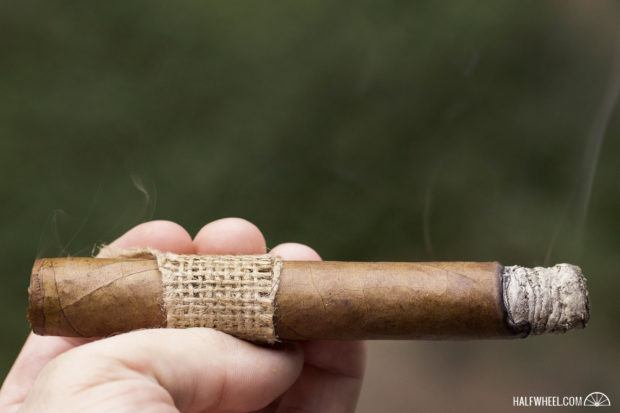Regular readers of halfwheel will likely have picked up on a growing trend of cigars previously released only in the Dominican market coming to the U.S. While Chogüí has garnered a bit of attention, other companies such as Humidores Dominicanos have shown up as well. There is another small Dominican brand that you can add to that list, however: Edolara Cigars SRL.
Launched in 2015 by Eduardo De Lara, the company debuted with a line called El Compartir, or “the sharing.” Made at Quesada Cigars, it was a full-bodied cigar that used a Mexican San Andrés wrapper over a core of Dominican tobaccos and was launched in a belicoso vitola before a robusto was added.
For its sophomore release, the company released Yute (pronounced you-teh), a single vitola line in a 6 x 52 flat headed toro with its origins dating back to 2012.
The idea for the Yute was born in the aging room of Manufacturera Rivas, a small factory in the Dominican Republic that you might also known as the “Top Secret Nest.” One day Lara was doing a bit of reorganizing in the aging room and found a bundle of cigars with no markings other than that they had been rolled in 2012. The other unique thing about them: they all had broken caps, some of which has been cut completely off.
De Lara’s birthday was coming up and he was wanting to find something to smoke, having recently sold and shipped his last remaining stock of El Compartir, so he assumed these cigars would be okay to smoke for a trial run. The draw was too loose for his liking—he says he prefers a punch cut for his cigars—so he asked one of the rollers to place a cap one of the cigars. He lit the cigar up and found it to be quite to his liking, so much so that he wanted to release the cigars.
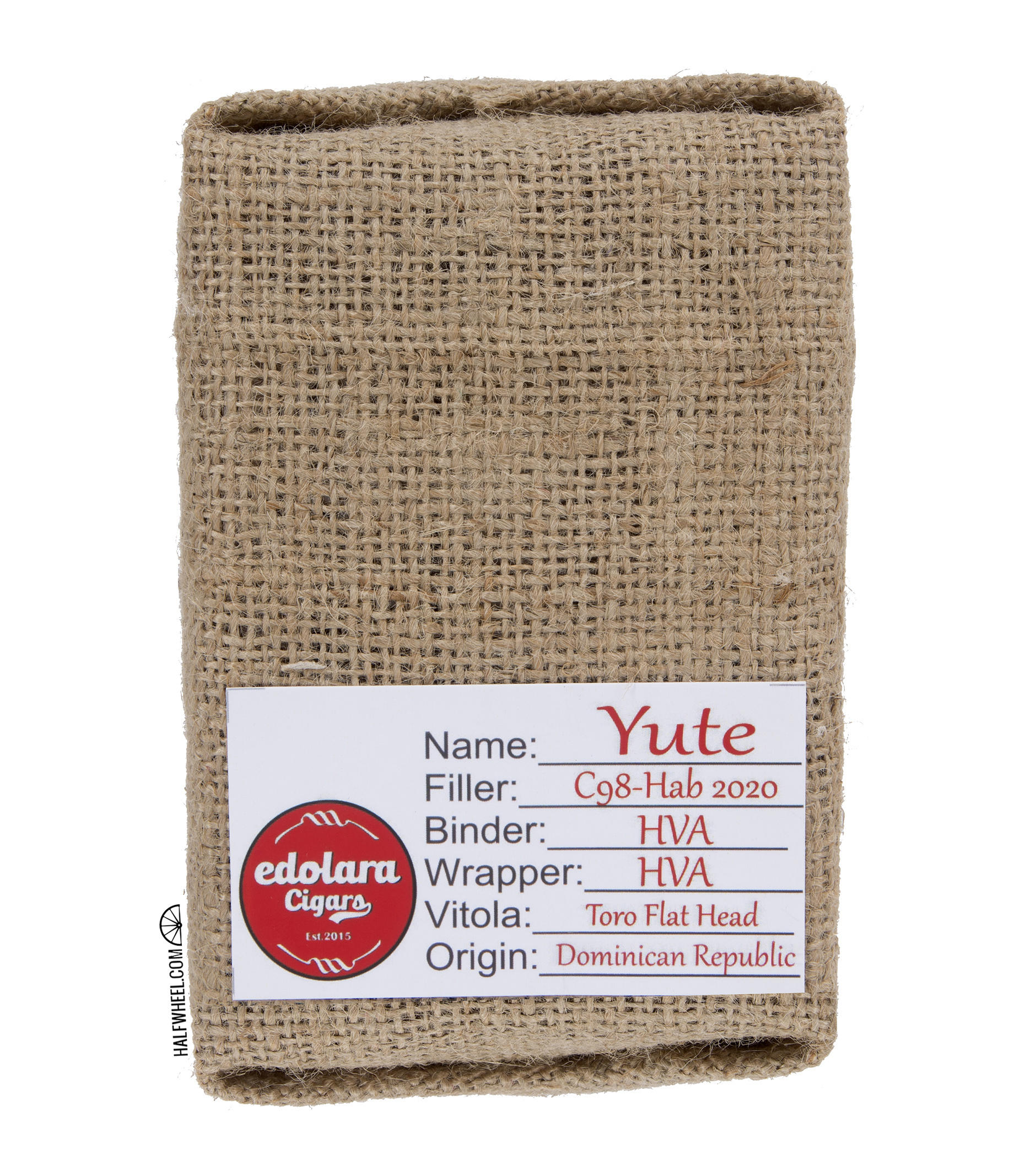
As for the name, it comes from the textile fabric found throughout tobacco factories, a durable material used to bundle tobacco in many of its forms and states, but most notably used for storing tobacco bulks in factories. While searching for a name, De Lara found some of the material lying around, cut a strip of it and placed it on the cigar as its band, and the Yute by Edolara Cigars was born, with the cigar to be packed in bundles made out of yute as well. The line launched in the Dominican Republic in April before being shipped to U.S. retailers in July.
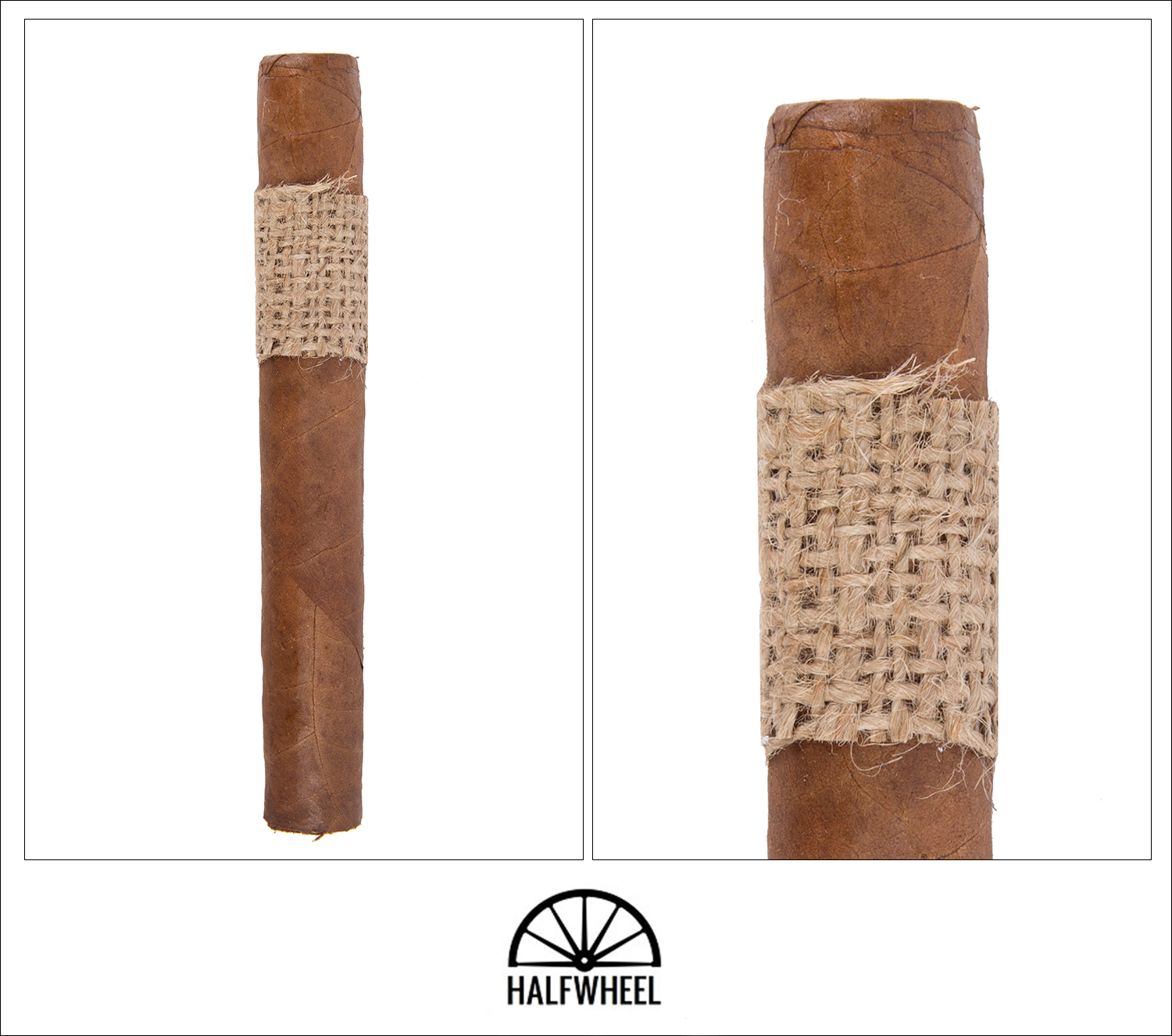
- Cigar Reviewed: Yute
- Country of Origin: Dominican Republic
- Factory: Manufacturera Rivas
- Wrapper: Dominican Republic HVA
- Binder: Dominican Republic HVA
- Filler: Dominican Republic (Corojo 98, Havana 2020)
- Length: 6 Inches
- Ring Gauge: 52
- Vitola: Toro
- MSRP: $9 (Bundle of 10, $90)
- Release Date: April 2016
- Number of Cigars Released: 450 Bundles of 10 (4,500 Total Cigars)
- Number of Cigars Smoked For Review: 3
Take your pick as to what is more interesting—the flat cap or the textile band—and I can’t say you’d be wrong in your selection. Ignoring both for the moment, the wrapper is a shade of brown slightly darker than toffee but slightly lighter than the lightest roast of coffee beans I can recall, and it is free from any huge veins or other visual distractions. The Yute can be a bit on the spongy side but for the most part offers a standard level of firmness. The pre-light aroma has a fruit cup sweetness; banana, peach and apple all stand out in the syrupy aroma, as do occasional hints of papaya and mango; if anything it’s the effervescence of the aroma that varies the most and I find myself the most intrigued when it offers that reminiscent of a white or sparkling wine. As for the flat cap, I’m not quite sure how to best remove it, so on the first sample I went with a XIKAR MTX Multi-Tool for a scissor cut, and as soon as I started the cut the cap quickly came loose, reminding me a bit of thin tissue paper. While I considered going with a punch cut for at least one sample, the ease in which the MTX took off the wrapper led me back to it for the other two samples, with any stray pieces of the cap easily clipped off or picked away with fingers. When it errs, the cold draw is a touch open and shows the same fruit note but this time leading with the mango and papaya, and some flavors that I imagine come from more exotic fruits that I might not have tasted yet, with pepper tucked behind all of that but not completely obscured.
While the Yute doesn’t start spicy, it doesn’t take long to get there, impacting a lingering palate by the burn line hitting the quarter-inch mark and before I can really right down my first impressions of the cigar. Those first puffs have touches of pepper but also a surprising amount of creaminess, some vanilla and a twang of terroir that I can’t quite place. There’s quite a progression in flavor in the first inch, as oats emerge in the flavor and pepper begins to take over after the first clump of ash breaks off, steadily taking over the spicier notes in the first inch. The burn and draw are both fantastic, with good amounts of smoke and nothing more than a slightly uneven burn line, and that is sporadic. Only the aroma seems to be lacking at the moment; an overall solid start for this cigar.
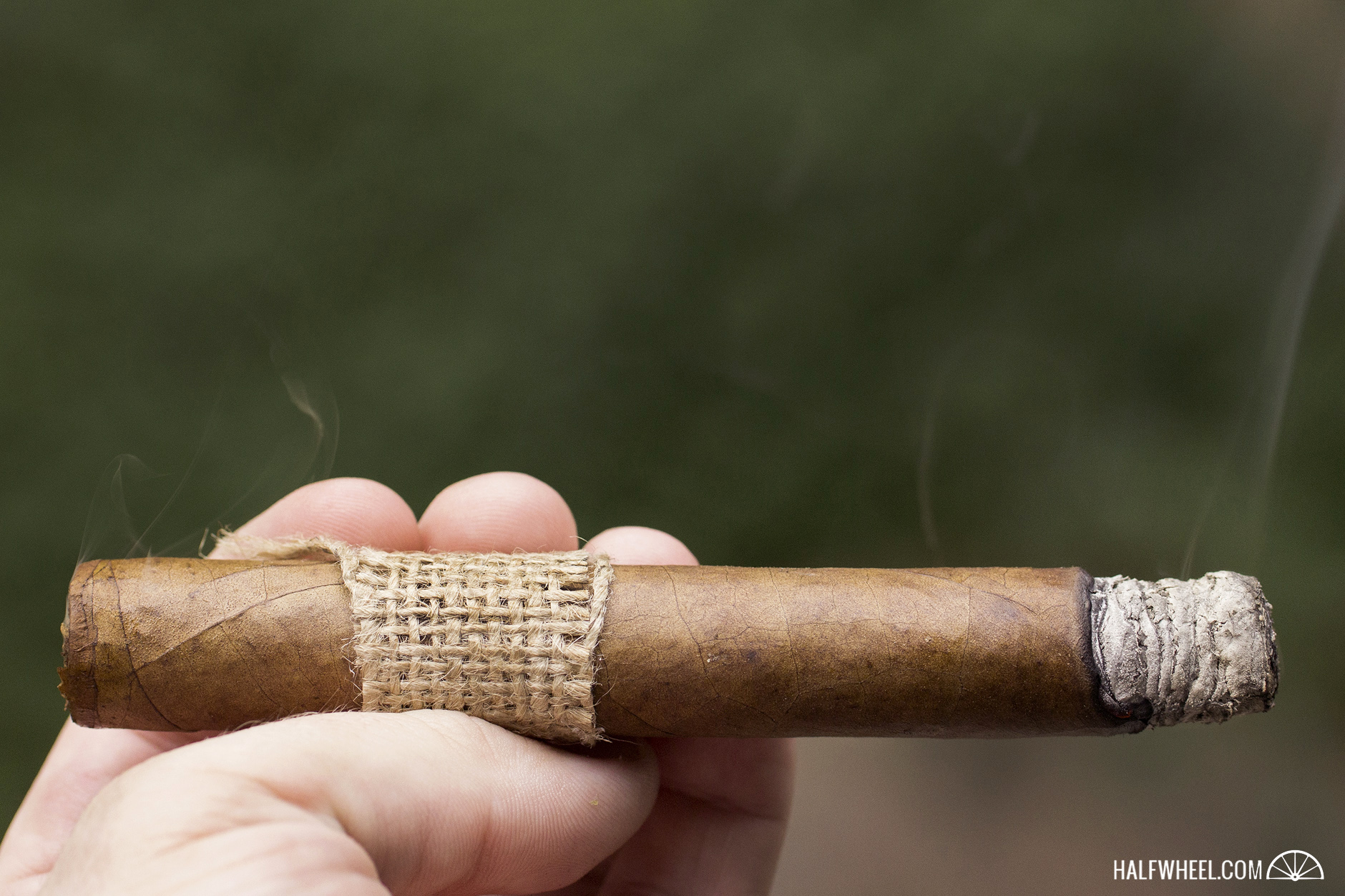
The second third of the Yute continues a gradual regression of the pepper from its dominant lead to a contributing component, and as should come as no surprise given the blend, the cigar takes on a decidedly Dominican taste. It’s a bit dry at times with light wood notes and occasional hints at sand, though the cigar never turns gritty and if anything is doing its best to stay creamy. The smoke is incredibly smooth, with retrohales now the main way to feel the Yute’s peppery punch. Moving past the midway point brings out a more pepper-forward profile that is quite vibrant and tingling on the tongue. While the cigar isn’t making massive transitions or progressions in flavor, it is letting the pepper do most of the directing of what steps it does take. The draw remains near perfect, and other than a few hiccups with combustion that required a relight from the lighter, the Yute has burned quite well.
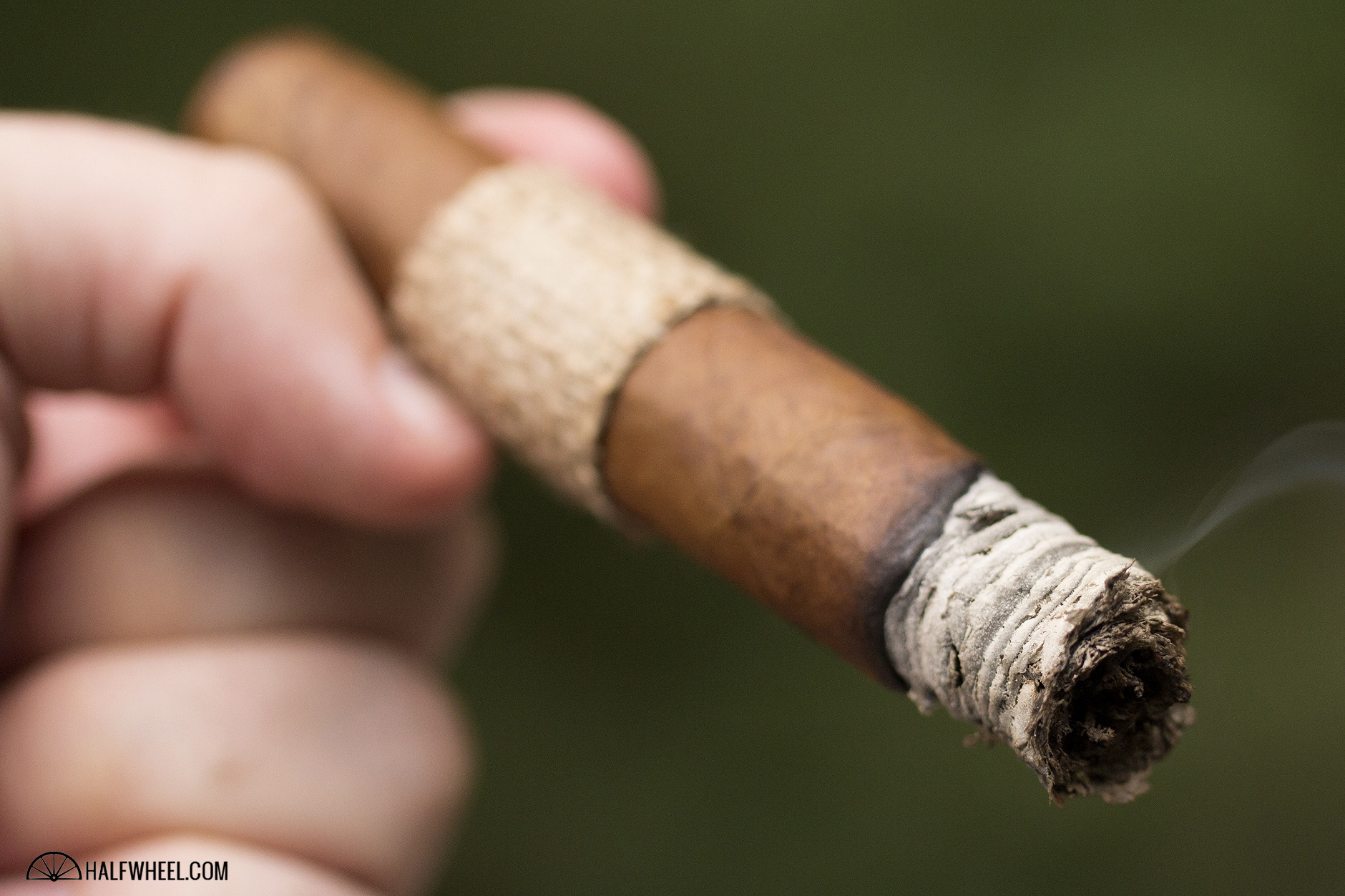
The distinctive wood notes that have carried the Yute to this point continue to be the backbone of the cigar heading into its final third, putting it at medium to medium-full in terms of flavor and body, with the pepper nudging it up when it returns at some of its most prevalent levels. The pepper continues to increase in its prevalence, becoming even more biting in the final two inches. It’s still manageable and can be enjoyable, but palates that aren’t receptive to pepper will almost certainly find it to be too much. It’s also in the final two inches where burn problems begin to arise, as each of the samples requires at least one full relight. The heat and pepper bring bitterness into the equation with just over an inch to go, a somewhat disappointing turn but one that isn’t a complete impasse, rather it’s the heat from the cigars core leaking out to the fingers that proves to be the ultimate signal to retire the Yute to the ashtray.
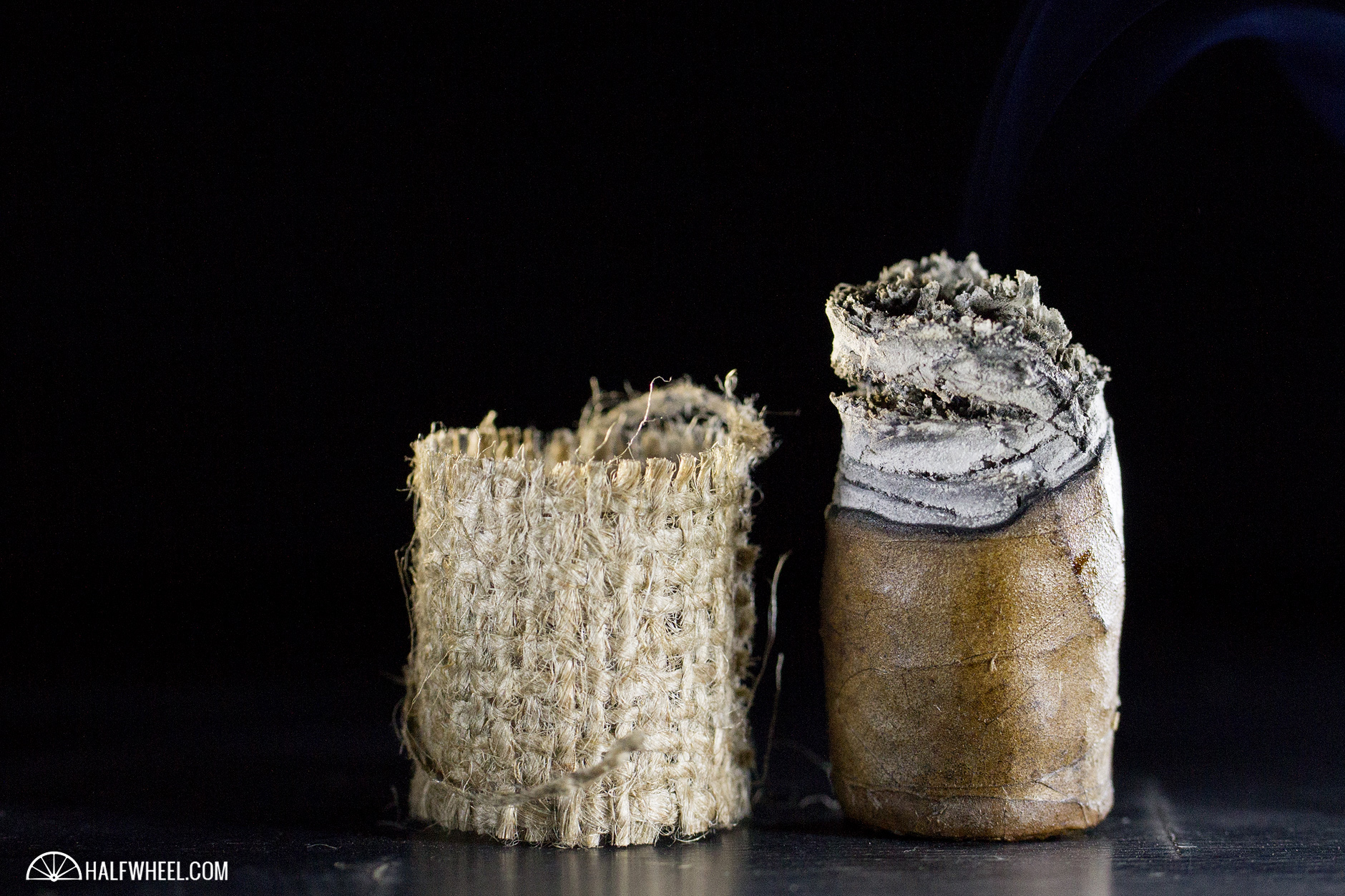
Final Notes
- I’m torn on the band; on one hand it is distinctive and unique; on the other, it misses the opportunity to create brand awareness and it looks a bit rough when the ends fray. I’d love to see a version with Yute stamped on it and ends that wouldn’t fray.
- That said, each of the bands slid off with no damage to the wrapper.
- I’m impressed not only by the way the caps are put on, but by how closely the shades of tobacco match, especially since they were applied well after the cigars were rolled.
- The caps are comparable to those found on RoMa Craft Tobac’s Neanderthal line and the CAO Flathead series, though I might say these seem a tad flatter.
- There is definitely a bit of a Lost&Found aspect to this cigar, though the backstory of coming across cigars tucked away in aging rooms isn’t a new one or one exclusive to any particular company.
- According to this Facebook post, the “last batch” of Yutes shipped on or around Oct. 18.
- While I think a punch cut would be more than appropriate, I would worry that the thin cap wouldn’t stand up to being smoked that way and would eventually loosen up to the equivalent of a straight cut. I could be wrong, however.
- This is one cigar where I could certainly see using a fingernail to get a more than adequate opening in the cap.
- This Instagram post suggests a new cigar could be on the way from Edolara Cigars.
- The Yute is the first cigar made at Manufacturera Rivas to be reviewed on halfwheel.
- Final smoking time was two hours and 20 minutes on average.
- The cigars for this review were provided by Edolara Cigars.
The story behind the Yute is an interesting one, with a fortuitous encounter between brand owner and aging room stash resulting in a cigar being salvaged and presented with two distinct features and an overall pleasing flavor profile. The first two thirds of the cigar are quite good, marked by clean and vibrant flavors that have smoothed out quite well, while the final third still has a ways to go in terms of combustion and occasional brushes with harshness. For fans of Dominican puros, the Yute has entered itself as a worthy option for cigar smokers, provided that you can come across the cigar.

